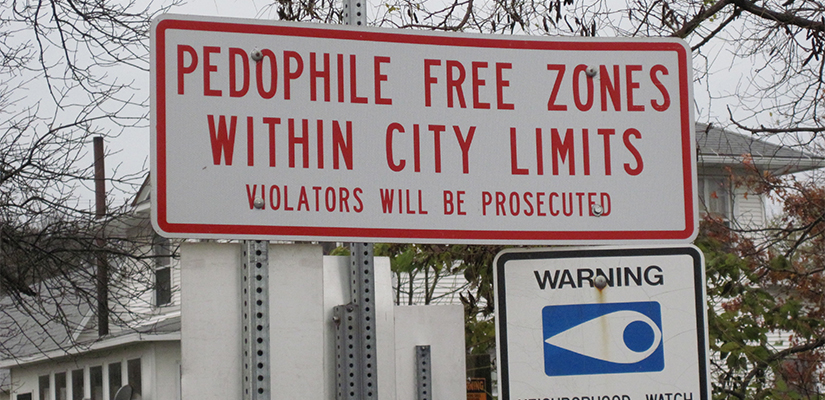In a shocking decision in support of those that have to register as sex offenders in California, a San Diego Court of Appeals has ruled that it is unconstitutional to prohibit registered sex offenders from living near schools or parks. This decision challenges the validity of Jessica’s Law which went into effect in 2006. This law prohibits PC 290 registered sex offenders from living within 2000 feet of a school of park.
Lawyers for PC 290 registrants argued to the court that this restriction on where they can live in effect leaves them “homeless” because over 95% of housing units in San Diego County are located within 2000 feet of a school or park. The County of San Diego argued that this provision of Jessica’s law was critical to protect children from being molested.
The court of appeals unanimously found that the law “imposes a substantially more burdensome infringement on constitutional rights than is necessary to protect children from sex crimes”. The court went on to state that “the blanket enforcement…(of this law) has been unreasonable and constitutes an arbitrary and oppressive official action”.
It is clear from the courts ruling that this provision of “Jessica’s Law” will likely be held unconstitutional throughout California.
If this happens this will mean that registered sex offenders will be allowed to live in any location they choose when they are released from custody and placed on parole. They will still be monitored by a probation or parole officer after their release from custody. However, if they decide to live across the street from a school of park this will not be considered a violation of their probation or parole.
Since this law was passed in 2006 it has resulted in thousands of sex offenders having great difficulty finding a place to live. In reality this results in scores offenders living in the same part of a city because that one part of the city is not within 2000 feet of a school of park. Residents in those sections of town are very unhappy that so many sex offenders are living very closely to them and their children.
This is a highly complex legal issue. This is a prime example of when laws are passed that may violate the constitutional rights of a segment of people. Registered sex offenders per PC 290 argue that they have been found guilty of a crime, and that they have been punished for their crime. They argue that it is unfair to continue to “punish them” by not allowing them to live where they choose to live. On the other hand parents of children strongly feel that they do not want known sex offenders to be allowed to live close to a school or a park where they can have easy access to young children.
We are very confident that this tough legal issue will end up being decided by the California or United States Supreme Court. However, until that time the decision decided by the court of appeals in San Diego will likely be followed through all of California.
We will keep you posted on future developments pertaining to this important legal issue.
Wallin and Klarich
Paul J. Wallin www.wklaw.com



